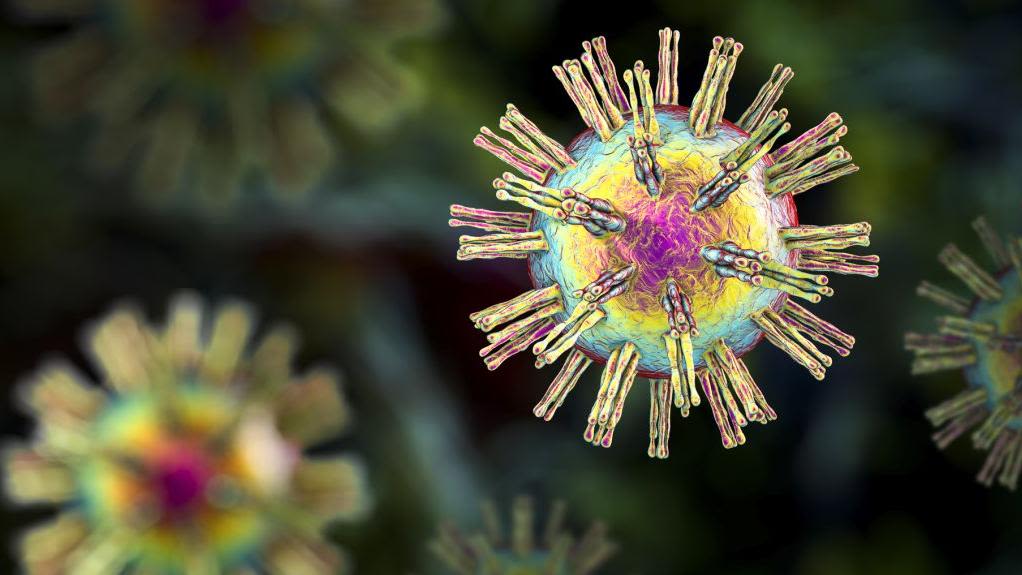

A new study suggests that repeated head injuries, such as concussions, a known risk factor for Alzheimer’s disease (AD), may reactivate a common dormant virus in the brain, increasing the risk of AD and other neurodegenerative conditions. Researchers found that even mild brain trauma can trigger this chain reaction, leading to harmful changes associated with memory loss and cognitive decline.
In previous studies, the researchers demonstrated the roles that common viruses, such as herpes simplex virus type 1 (HSV-1) (the so-called cold sore virus) and varicella zoster virus (VZV) (which causes chickenpox and shingles) play in the development of AD. HSV-1 can lie dormant in human cells for a lifetime, but when it re-awakens it can cause changes that resemble changes observed in AD patients’ brains – amyloid plaque-like formations (PLFs), gliosis, neuroinflammation, and decreased functionality.
In the latest study, published today in Science Signaling, the researchers once again used their small, 3D, bioengineered human brain tissue model to test the effects of physical trauma on the brain cells. When the brain tissues were exposed to repeated “mild blows,” similar to concussions, the previously dormant HSV-1 virus became active. This reactivation triggered inflammation, beta-amyloid plaque build-up, and the formation of harmful tau proteins, which can damage brain cells and impair memory.
Importantly, the researchers also found that blocking an inflammatory molecule called Interleukin-1 beta (IL-1β) prevented many of these harmful effects in lab models, opening the door to potential new treatments for those at risk.
Professor Ruth Itzhaki, who led the research with Drs Cairns and Kaplan at Tufts, has been researching the potential role of HSV-1 in AD for more than 30 years, beginning at the University of Manchester, where her team discovered HSV-1 DNA is present in the human brain in a high proportion of older people – the first microbe to be detected definitively in normal human brains.
more recommended stories
 CTNNB1 Syndrome Study Explores Beta-Catenin Defects
CTNNB1 Syndrome Study Explores Beta-Catenin DefectsKey Takeaways Researchers in Spain are.
 Tuberculosis Breakthrough with Experimental Antibiotics
Tuberculosis Breakthrough with Experimental AntibioticsKey Takeaways Experimental antibiotics disrupt a.
 National Healthy Longevity Trial Receives Federal Support
National Healthy Longevity Trial Receives Federal SupportKey Summary Up to $38 million.
 Red Blood Cells Improve Glucose Tolerance Under Hypoxia
Red Blood Cells Improve Glucose Tolerance Under HypoxiaKey Takeaways for Clinicians Chronic hypoxia.
 Nanoplastics in Brain Tissue and Neurological Risk
Nanoplastics in Brain Tissue and Neurological RiskKey Takeaways for HCPs Nanoplastics are.
 AI Predicts Chronic GVHD Risk After Stem Cell Transplant
AI Predicts Chronic GVHD Risk After Stem Cell TransplantKey Takeaways A new AI-driven tool,.
 Red Meat Consumption Linked to Higher Diabetes Odds
Red Meat Consumption Linked to Higher Diabetes OddsKey Takeaways Higher intake of total,.
 Pediatric Crohn’s Disease Microbial Signature Identified
Pediatric Crohn’s Disease Microbial Signature IdentifiedKey Points at a Glance NYU.
 Nanovaccine Design Boosts Immune Attack on HPV Tumors
Nanovaccine Design Boosts Immune Attack on HPV TumorsKey Highlights Reconfiguring peptide orientation significantly.
 High-Fat Diets Cause Damage to Metabolic Health
High-Fat Diets Cause Damage to Metabolic HealthKey Points Takeaways High-fat and ketogenic.

Leave a Comment